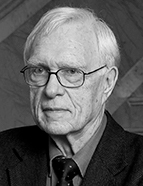

Payne innovated in two important ways. On the one hand, he chose to investigate the history of a country that, according to him, had hardly been studied at the universities where he had taught. On the other hand, his research on fascism stood out for its innovative combination of a comparative perspective with the culturalist approach developed by Mosse. This approach characterised by its emphasis on ideology in the analysis of fascism, defining it through the method of methodological empathy. This method, developed by Mosse, allowed for a better understanding of fascist thinking and contributed fundamentally to a subsequent renewal of fascism studies in the 1990s (Roger Griffin, Fascism, 2018, p. 40). Until then, few historians had appreciated it or been influenced by it. Payne was one of them, having investigated fascism from an ‘inside out’ perspective centred on primary sources (‘Oral History...’, 2018).
In 1960, the historian completed his doctoral thesis entitled José Antonio and the Beginning of Falange Española, which led to the publication of his first book entitled Falange: A History of Spanish Fascism. This work stood out for its pioneering and detached analysis of the main Spanish fascist movement. Payne included methodological empathy in his analysis by focusing on primary sources, particularly the works of Spanish fascist leaders. Through this approach, he was able to lay the early foundations for his future generic definition of fascism (Michael Seidman, Stanley G. Payne: An Intellectual Biography, 2008, p. xii). Furthermore, in this work he presented a critical position that would become consolidated throughout his career and controversial, according to which it was the left that initiated the cycle of violence in which the fascists entered, and therefore destabilised the republic in the first place (Idem, p. xi).
This work is financed by national funds through FCT - Foundation for Science and Technology, I.P, in the scope of the projects UIDB/04311/2020 and UIDP/04311/2020.
